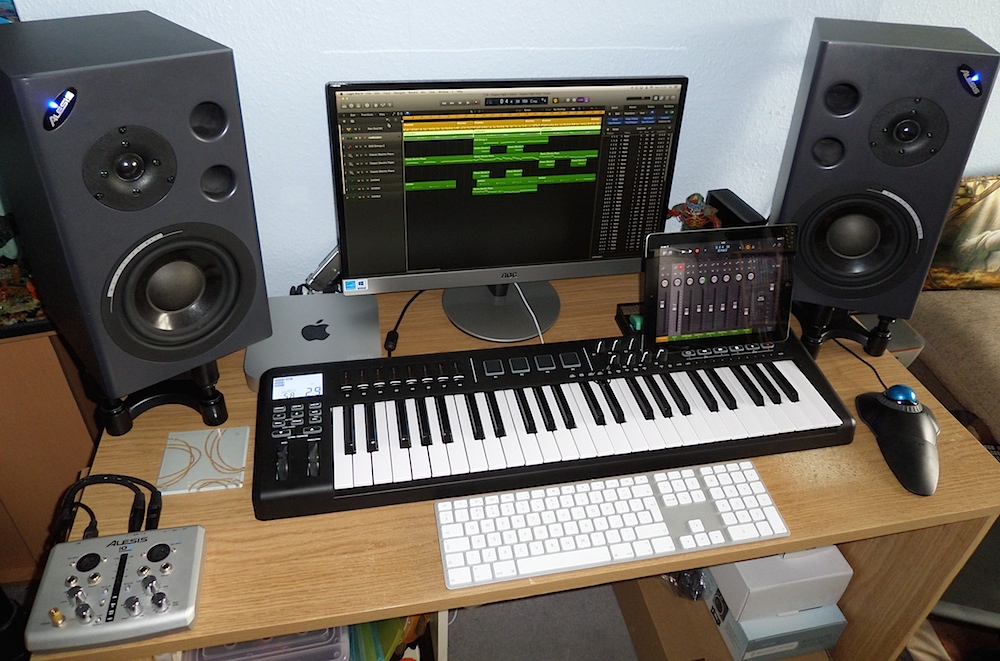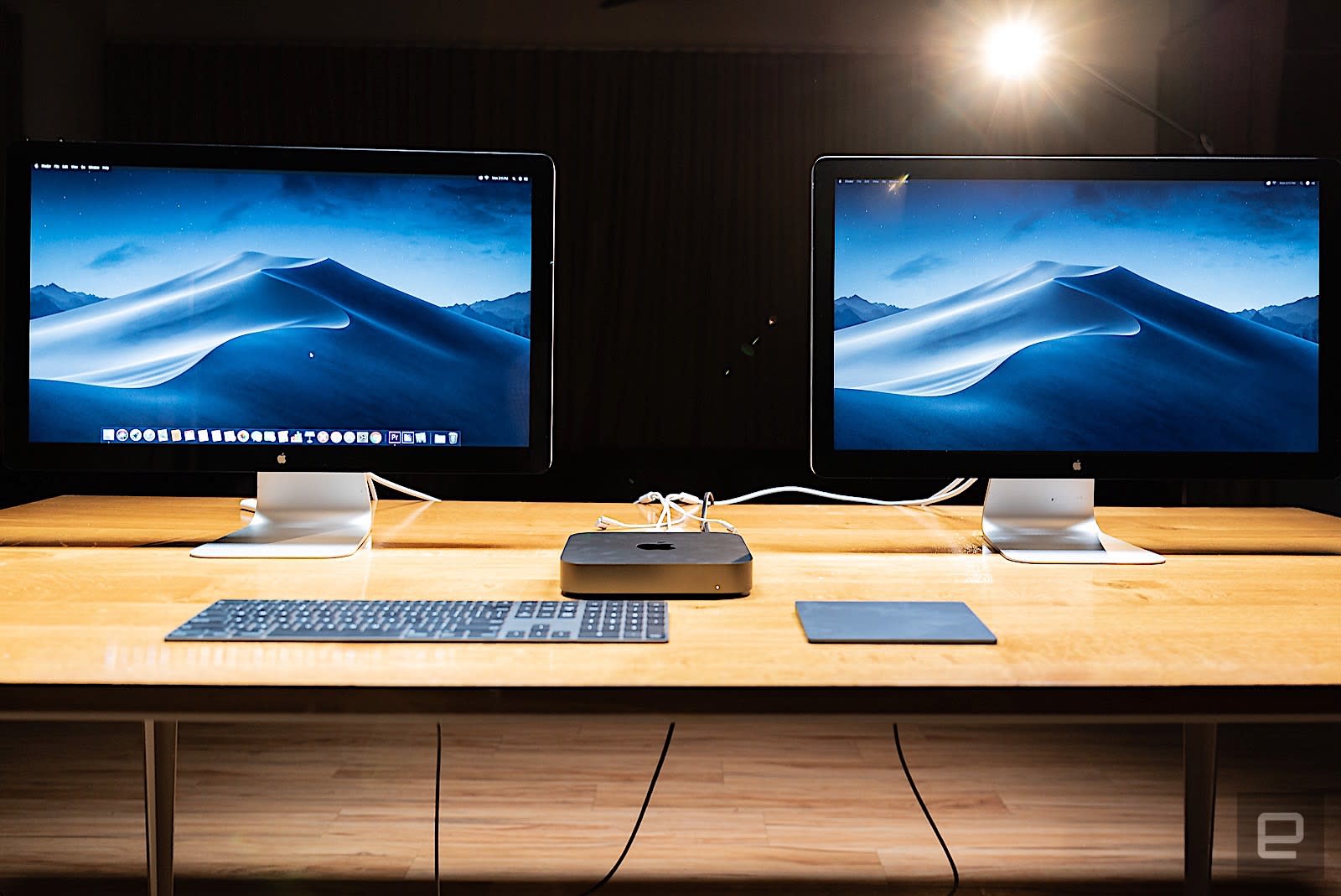With the dawn of home-based producers, or what some people call “bedroom producers”, many aspiring composers and DJs are looking for ways to set up their own music hive.
Has anyone used a Mac Mini for music production? I'm looking to upgrade from my 2012 MBP (i7, 16gb ram, SSD etc). Does anyone have any. Aug 13, 2016 My greetings to all the people in this forum. So, i want to buy a mac mini for music production and since i'll use samplers and many plugins to mix ( i go with the waves most of the time ) i will need a suitable mac mini.

Most of them start with laptops or desktop PCs and work their way up to upgrade from mouse and keyboard sequencing to using MIDI keyboards, mixers and so forth.
A big question that comes up amongst music producers is if you can us an iMac, which is regarded as a consumer product, for heavy audio production.

In this article, we are going to break down the iMac’s specifications and if it qualifies as a reliable computer for music production.
Are iMacs powerful enough for music production?
Generally speaking, all iMacs come with 8 gig of RAM, which should be enough for any producer to get their hands on.
The number of tracks, audio files and effects that can be produced in a song, especially if you are working with a lot of automations and you need to fully-master every bit of sound in your song, can also define how much CPU you need, and how big of a screen you need to check everything in place.
This is why some producers have already resorted to getting an iMac for their music production not just because of the big screen, but also the heavy processing power that can cater big DAWs.
Running low on hard drive space can also take its toll on your production power and make you run low on CPU, so most producers get an external hard drive that includes all audio files of their projects, or divide the hard drive into partitions.
For music production, SSD, or solid state drives, are ideal. They make your computer boot in a fraction of the time that it would normally take. It also makes your programs load faster. The only downside to SSD hard drives is that they are more expensive.
Which iMac should you go with?
There are various iMac models to choose from that have screen sizes from 21.5 inches to 27 inches.
The Mac you choose depends on your preference(your DAW’s CPU needs), budget and most importantly your working space. Apple products are usually expensive so you should take your time deciding which Mac is best suited for you.
I’d recommend getting an iMac with quad-core or higher. The entry-level iMac is dual-core with 1.4GHz of processing power. For a little bit more, you can get an iMac with twice the hard drive space and almost twice the processing power.
iMac vs. Mac Mini (for music production)
When buying a Mac, most people either go with a Mac Mini or an iMac.
If you want to save cash, you can go for the Mac Mini. The Mac Mini just tends to be less upgradable. Then again, if you already have a previous desktop computer or even an HDTV at home or on your working space, getting a Mac Mini will save you a couple hundred bucks. Much like desktop PCs, you can upgrade their RAM as you wish depending on your production needs and how much your budget can afford.
Despite the big cash that you’ll need for the iMac, some producers would stick to their guns because they know they can’t run their DAWs and audio plugins as smoothly as in a Mac Mini, but hey, it’s up to the producer, right?
Not everyone uses high-quality and heavy VSTs and might be more into recording from real instruments instead. If you run a lightweight production set up, it won’t be necessary spending an extra $1000+ on a more powerful Mac.
An iMac is a great choice because it provides you with great CPU power, specifications and an extremely high build quality. However, not everyone can afford an iMac and if you are a “bedroom producer”, getting might be enough to serve your purposes.
Nonetheless, both computers are excellent choices when it comes to music production. The Macs of today are more powerful than they have ever been.
Using The Mac Mini For Music Production
Final Notes:
So, do you still think an iMac is nothing but a product built for average consumers?
No way!
The entry-level iMac comes jam packed with 8GB of ram. Memory is easily upgradable on a Mac and can dramatically improve your computer’s speed.
An iMac is a perfect choice for music production!
Previous:
Best Deep House Sample Packs: We Found The DEEPEST Packs Around TownNext:
[Top 5] What’s The Best Turntable For Sampling Vinyl?I always hear people saying that the Mac Pro is the Mac of choice for musicians but, as a hobbyist, I simply can't justify the expense. I'm tempted by a Mac Mini, as I already have a decent screen, but am concerned that it won't be able to cope with the requirements of audio recording. What are the pros and cons?
Petra Smith via email
SOS contributor Mark Wherry replies: While it used to be the case that a high-end computer like the Mac Pro was essential for running music and audio applications, these days it's really hard to purchase a system that will be incapable of such tasks. It's all a matter of how many audio tracks, instruments and effects you need the computer to handle. Among the most important factors to consider in determining such handling are the type and speed of the processor, the amount of memory and the speed of the hard disk.The updated Mac Mini comes with a 2.4GHz processor, 2GB RAM and a 320GB hard drive as standard, making it perfectly capable of running decent numbers of tracks.Photo: Apple
Since the first Power PC-based model was introduced (see the full review at /sos/may05/articles/applemacmini.htm), the Mac Mini has established itself as a basic-yet-capable studio computer. The current range features Intel Core 2 Duo processors, and the 2007 MacBook Pro (which, with a 2.4GHz processor, had similar performance capabilities) gives us a rough guide of the performance you can expect: using Logic Pro 7, this was capable of running 150 PlatinumVerb instances, 54 Space Designers and 512 EXS24 voices (with the filter enabled). Today's baseline Mac Mini also has a 2.4GHz processor, so those figures should be roughly comparable.
When it comes to memory, the 2GB supplied in the entry-level Mac Mini should be just enough to get you started. But you'll find life rather more comfortable with 4GB, especially if you want to work with sample‑based instruments. It's worth bearing in mind that 8GB is the maximum amount of memory supported by the Mac Mini.
Mac Mini Vs Macbook Pro For Music Production
In terms of storage, the basic Mac Mini comes with a 360GB drive. But, perhaps more crucially, this internal drive runs at 5400rpm — slower than those used in most other Macs — which will limit the number of audio tracks you can play back simultaneously. As a guide, you should expect to be able to handle approximately 50 to 60 mono 16-bit tracks at 44.1kHz. However, it is possible to connect a faster drive for audio, thanks to the Mac Mini's built-in FireWire 800 port — assuming you're not already planning to use this port for an audio interface, of course, since daisy‑chaining devices isn't always possible.
Using Mac Mini For Music Production
Another important factor when considering the Mac Mini, and one that might initially sound a little bizarre, is price. Although the Mac Mini is the cheapest Mac that Apple sell, its £649starting price can be deceptive in terms of value, even though, on paper, it's several hundred dollars cheaper than the cheapest iMac. If you already have a suitable monitor, keyboard and mouse, that's fine. But if you factor in the cost of these required devices to even the cheapest Mac Mini, the price difference between that and the low-end iMac starts to narrow considerably.
In a nutshell, the Mac Mini remains a basic, yet capable machine that provides a good starting point. However, in many ways, the entry-level iMac represents better value for those on a budget, especially if you see yourself quickly outgrowing the Mini's capabilities.